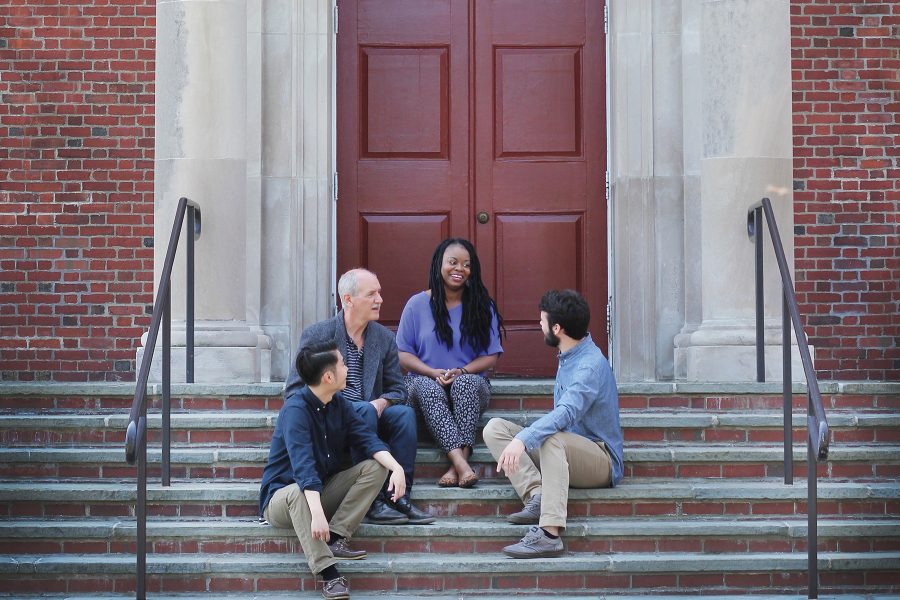Why Theology Matters

Richard Lints
Senior Distinguished Professor of Theology
What we worship will be deeply reflected in our lives. The objects of one’s respect and admiration reveal the inner dispositions of the heart from which the patterns of living flow. As Yahweh reminded Israel consistently during its sojourn in the wilderness, they were to have no other gods. The underlying premise was that Israel’s identity would inevitably be formed by the gods they worshiped. Worship the Living God and Israel would be “alive” to justice and compassion. Worship the dead idols like the Golden Calf, the Israelites would have eyes but would not see, they would have ears by would not hear, and their hearts would grow stone cold to justice and compassion.
For these same reasons, the church must be aware of its communal idols though often these go unnoticed because of the surrounding glitz of the wider corporate idols of our culture. In comparison to the greed and avarice rampant in the virtual 24/7 entertainment culture that surrounds us, gossip and small white lies seem almost insignificant among church members. But as every parishioner and pastor can testify, gossip and small white lies can ruin the well being of a church faster than almost anything else.
How then can we think more clearly and live more faithfully together in the church? The beginnings of an answer lay precisely in the mapping of our lives not through the categories of our ordinary experience, but rather through the categories of God’s Living Word. Mapping our world and our lives in the categories of Scripture is what theology in its broadest sense is called to do—and why it lies near the heart of the seminary’s life. To put it succinctly, theology matters because worship matters.
Seminaries which are theological in this sense of the word have as their goal the instilling of wisdom. We might call it theological wisdom. And as in the Proverbs, wisdom begins with the fear of the Lord, which is rooted in the sense of living always in his Presence. The aim of theological wisdom is to form within the soul of the church the courage and conviction necessary to repudiate the idols and return continuingly to the Living God.
The goal and deep foundation of this training in theological wisdom is to know God and to see all of the pastoral tasks as flowing from that fundamental covenantal relationship. It is in this covenantal relationship that all virtue is understood as deriving from its ultimate source—namely God himself. In this sense virtue could not be taught strictly speaking, but it could be cultivated by encouraging the fundamental commitment and relationship to God.
The educational context of the seminary must be the Scriptures which narrate the story of the Gospel in which the restoration of the worship of God takes place in the community of God’s people. This model of theological education is by necessity built upon a vocational relationship with the church. The life of theology belongs in the seminary only because the life of the seminary belongs to the church. Theology, if it is true, is always lived in the life of the church. For it is the church that carries with it two enduring stories—the stories of its tradition and past, as well as the story of redemption itself.
Each church in this sense has a theological identity shaped by living in two worlds—the world of the particular situation of the congregation/denomination and the world of the divine drama of redemption. Its “local story” might include its own institutional history, its peculiar geographical/cultural shape, etc. Its “mega-story” is told through the preaching of the gospel, its reading of the canon, its celebration of the sacraments, etc. The absorption of the local story into the universal story is and always ought to be the defining mission of the church. The great danger, which is always lurking, is to tell the story of redemption as simply one small chapter in the local story. The congregation must be careful not to suppose that its history is simply coextensive with redemptive history.
If the church in each age consists of those whom God has called out from a rebellious world to live in fidelity to his Lordship, then its security lay precisely in being defined by God’s story rather than the story of its idols. It is God who grants to his people a theological vision and it is the church which must “see” life through that vision. The church is the fundamental context God has chosen to carry forth that vision and it is the church which continues to be the manner in which God mediates his presence in each age. Theological education is centrally a matter of knowing who to worship and who not to fear. In this it remains the handmaiden to the flourishing of God’s people—and why you should think about coming to seminary!